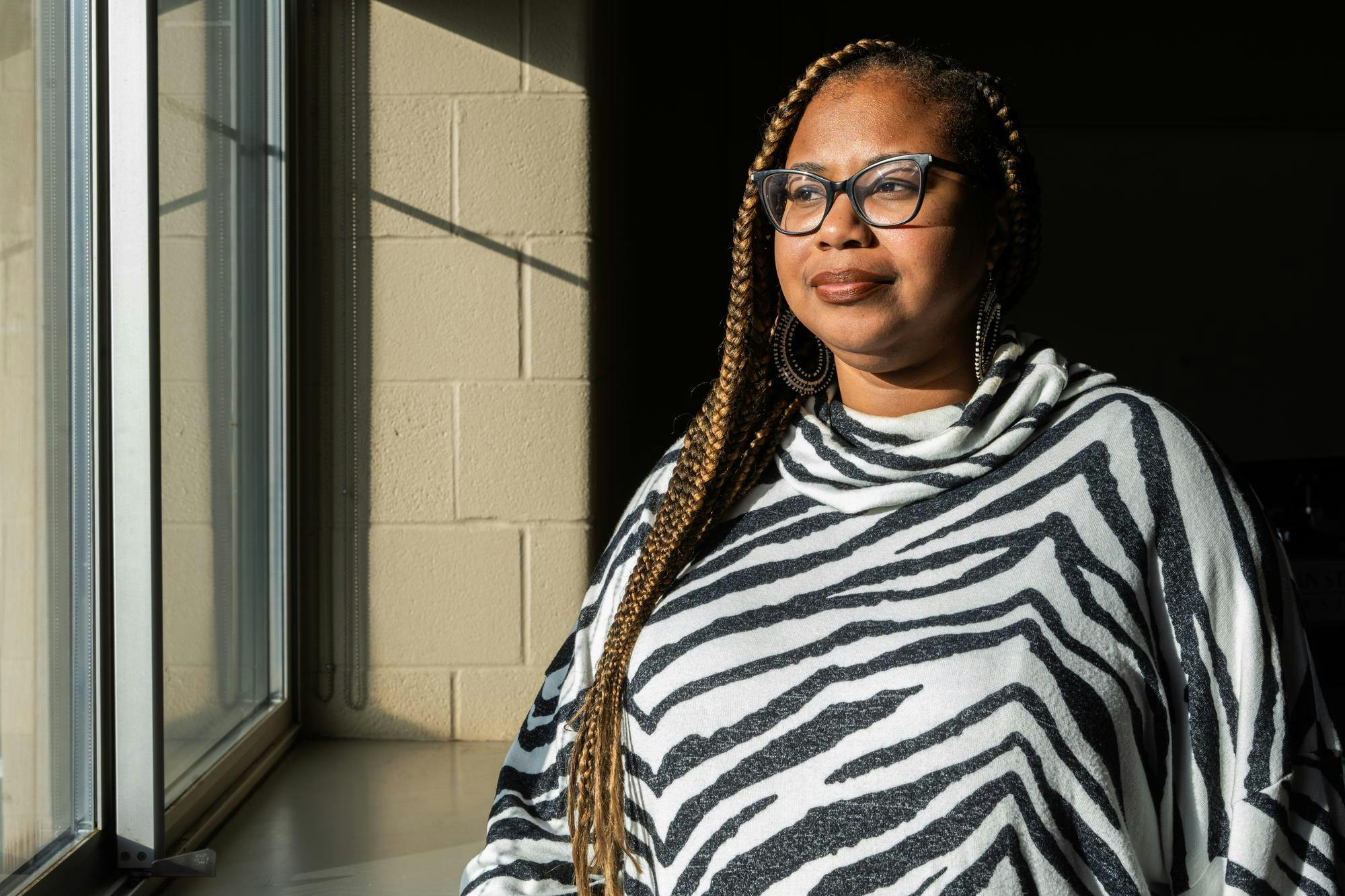When Dr. Leconté Dill was pregnant, her dream journal was very thick.
“A lot of blood, a lot of fear” filled many nights, she said. Some dreams contained tales of ghosts and hauntings.

Dr. LeConté Dill poses for a photo in Bessey Hall on Feb. 15, 2024. Dill's play, which is based on a series of dreams she had when she was pregnant, aims to examine the medical world's lack of attention paid to maternal deaths among black women.
When Dr. Leconté Dill was pregnant, her dream journal was very thick.
“A lot of blood, a lot of fear” filled many nights, she said. Some dreams contained tales of ghosts and hauntings.
But others held hope.
“I would actually imagine my daughter,” Dill said. “How she’ll look when she's born, how she’ll look when she's four years old, how we’ll play together.”
Dill, an associate chair and professor in Michigan State University’s Department of African American and African Studies, had two miscarriages before becoming pregnant again in 2020.
Her birth journey, and the nightly dreams that accompanied it, serve as the basis for her new project, a play called “Pregnant with Freedom.” The play uses auto-ethnography, a genre of academic writing centered around the lived experience of the author, to tell a story of tradition, culture and Black motherhood.
“There's a lot of ritual in the play, a lot of spirituality,” Dill said. “The main character is trying to become a mother, trying to keep herself and her baby healthy, trying to birth in a healthy way and be a mother with concern with healing and wellness and breaking generational cycles and combating larger macro-aggressions.”
The play, which is still in the works, marks Dill’s first voyage into theater. Once completed, Dill hopes it can be performed at MSU and submitted to competitions.
The project recently won an approximately $25,000 grant from MSU, which Dill says will help her carve out time to work on it.
“Black women overwhelmingly are not cared for during birth,” Dill said.
Her close friend, Dr. Shalon Irving, a public health researcher and a Black woman, also had fertility problems precede her pregnancy. But those problems became fatal when doctors ignored her repeated pleas for further postpartum treatment. She died two weeks after giving birth, in 2017.
Dill says that’s just one example of a larger issue. The maternal mortality rate for Black women is 2.6 times that of white women, according to the Center for Disease Control and Prevention.
Dill’s own birth experience was marked by “a lot of advocacy, but also some pressuring,” she said.
Some doctors pushed her to have a C-section, even though it was not in her birth plan to do so unless medically necessary.
“There were doctors saying, like, ‘let's just hurry up and get it over with,’” Dill said.
Others provided a more helpful hand. One Black female doctor stood up for her desire not to have the C-section.
“She was literally having to fight with her peers,” Dill said.
She hopes her play will spur more conversation around fertility and Black motherhood, and inspire people to think more about their own dreams.
Support student media! Please consider donating to The State News and help fund the future of journalism.